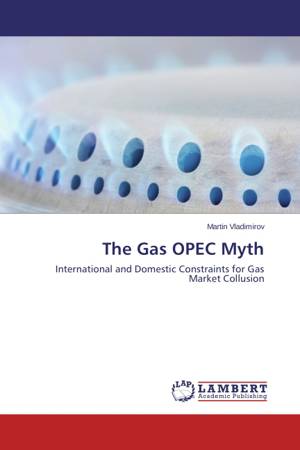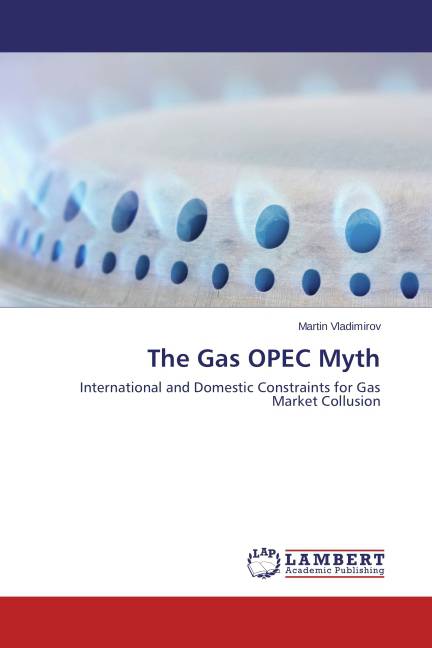
- Afhalen na 1 uur in een winkel met voorraad
- Gratis thuislevering in België vanaf € 30
- Ruim aanbod met 7 miljoen producten
- Afhalen na 1 uur in een winkel met voorraad
- Gratis thuislevering in België vanaf € 30
- Ruim aanbod met 7 miljoen producten
Zoeken
The Gas OPEC Myth
International and Domestic Constraints for Gas Market Collusion
Martin Vladimirov
Paperback | Engels
€ 23,95
+ 47 punten
Omschrijving
The Gas OPEC Myth analyzes the reasons why a global natural gas cartel is not yet possible. Gas market collusion requires the elimination of significant constraints including regionalization of markets, gas demand elasticity, supply glut and lack of incentive for international political cooperation. The book also adds a domestic layer by discussing the different motives for natural gas producers to avoid joint setting of prices and quantities. While several studies have pointed to the economic benefits of collusion for the natural gas exporters, their conclusions are based on strong market assumptions including the convergence of regional gas prices on a global level, creation of spot markets based on LNG and the possibility for political cooperation among the members of the Gas Exporting Countries Forum (GECF). The book suggests that a functioning natural gas cartel could be possible if there were a market-sharing agreement between the two largest natural gas exporters, Russia and Qatar, and if key resource holders in the Middle East and Central Asia were to join the GECF, the dubbed gas-OPEC.
Specificaties
Betrokkenen
- Auteur(s):
- Uitgeverij:
Inhoud
- Aantal bladzijden:
- 72
- Taal:
- Engels
Eigenschappen
- Productcode (EAN):
- 9783659596872
- Verschijningsdatum:
- 17/09/2014
- Uitvoering:
- Paperback
- Afmetingen:
- 150 mm x 220 mm
- Gewicht:
- 113 g

Alleen bij Standaard Boekhandel
+ 47 punten op je klantenkaart van Standaard Boekhandel
Beoordelingen
We publiceren alleen reviews die voldoen aan de voorwaarden voor reviews. Bekijk onze voorwaarden voor reviews.











